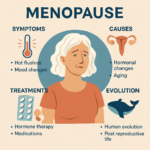
Schizophrenia is a complex and often misunderstood mental health condition that affects millions of people worldwide. Despite its prevalence, there are still many misconceptions surrounding the disorder, leading to stigma and a lack of understanding. In this blog, we delve into 25 intriguing facts about schizophrenia that shed light on its symptoms, causes, treatment options, and the experiences of those living with the condition. From the importance of early intervention to the role of support networks, these facts aim to educate and inform, fostering a greater awareness of schizophrenia and promoting empathy for individuals navigating this challenging journey. Join us as we explore the multifaceted nature of schizophrenia and uncover the truths that can help demystify this often-misrepresented mental health issue.
Prevalence: Schizophrenia is a serious mental health disorder that affects approximately 1 in 100 people worldwide, translating to about 1% of the global population. The prevalence remains consistent across different cultures and geographical regions, indicating that it is a universal condition. This statistic underscores the importance of awareness and understanding of schizophrenia, as many individuals and families are affected by its complexities.
Onset: The onset of schizophrenia typically occurs in late adolescence to early adulthood, with the majority of cases emerging between the ages of 16 and 30. This developmental stage is critical as it coincides with significant life transitions such as completing education, entering the workforce, and forming relationships. Early onset can lead to challenges in achieving personal and professional goals, making timely intervention and support crucial for affected individuals.
Gender Differences: Research indicates that men generally develop schizophrenia earlier than women, with the onset often occurring in their late teens to early 20s. In contrast, women tend to experience the onset of symptoms in their late 20s to early 30s. This difference in age of onset may be influenced by hormonal factors, social roles, and coping mechanisms, which can affect the manifestation of the disorder. Understanding these gender differences is important for tailoring treatment and support strategies.
Genetics: Genetics plays a significant role in the risk of developing schizophrenia. Individuals with a family history of the disorder have a 10% chance of being affected if a first-degree relative, such as a parent or sibling, has schizophrenia. This genetic predisposition suggests that multiple genes may contribute to the disorder’s development, although environmental factors also play a critical role. Research continues to explore the complex interplay between genetics and environmental influences.
Symptoms: Schizophrenia is characterized by a range of symptoms that can be categorized into positive symptoms (such as hallucinations and delusions), negative symptoms (such as lack of motivation and social withdrawal), and cognitive symptoms (such as impaired memory and attention). These symptoms can severely impact an individual’s ability to function in daily life, affecting personal relationships, employment, and overall quality of life. Understanding these symptoms is essential for early identification and intervention.
Hallucinations: Among the various types of hallucinations experienced by individuals with schizophrenia, auditory hallucinations—specifically hearing voices—are the most common. These experiences can be distressing and may involve the voices commenting on the individual’s behavior, giving commands, or engaging in conversations. The presence of auditory hallucinations can significantly impact an individual’s reality perception and emotional well-being, making effective treatment vital.
Delusions: Delusions are firmly held false beliefs that are resistant to reasoning or contrary evidence. Paranoid delusions are particularly prevalent among individuals with schizophrenia, where they may believe they are being persecuted or targeted by others. These delusions can lead to significant distress and may cause individuals to withdraw from social interactions or become suspicious of those around them. Addressing delusions through therapy and medication is essential for improving the individual’s functioning.
Cognitive Impairment: Cognitive deficits are a common feature of schizophrenia, affecting areas such as attention, memory, and executive functioning. These impairments can hinder an individual’s ability to process information, make decisions, and maintain focus, which can complicate daily activities and social interactions. Cognitive impairments often persist even when other symptoms are managed, highlighting the need for targeted cognitive rehabilitation strategies as part of a comprehensive treatment plan.
Comorbidity: Schizophrenia frequently co-occurs with other mental health disorders, with approximately 50% of individuals experiencing a substance use disorder alongside their schizophrenia. This comorbidity can complicate treatment, as substance use may exacerbate symptoms or interfere with the effectiveness of medications. Addressing both conditions simultaneously through integrated treatment approaches is crucial for improving overall outcomes and quality of life.
Substance Use: The prevalence of substance use disorders among individuals with schizophrenia is significant, with about 50% affected. Common substances include alcohol, cannabis, and stimulants, which may be used as a form of self-medication to cope with distressing symptoms. However, substance use can lead to a worsening of psychiatric symptoms, increased risk of relapse, and greater challenges in adhering to treatment plans. Comprehensive care that addresses both schizophrenia and substance use is essential for recovery.
Treatment: Antipsychotic medications are the cornerstone of treatment for managing symptoms of schizophrenia. These medications primarily target neurotransmitter systems in the brain, particularly dopamine, to help reduce symptoms such as hallucinations and delusions. There are two main categories of antipsychotics: typical (first-generation) and atypical (second-generation) antipsychotics. While these medications can be effective in managing symptoms, they may also come with side effects, necessitating careful monitoring by healthcare professionals. It is important for individuals to work closely with their healthcare providers to find the most effective medication regimen for their specific needs.
Psychotherapy: Cognitive-behavioral therapy (CBT) has been shown to be effective in helping individuals with schizophrenia manage their symptoms and improve their overall functioning. CBT focuses on identifying and challenging negative thought patterns and beliefs, helping individuals develop coping strategies to deal with distressing symptoms. In addition to CBT, other therapeutic approaches, such as supportive therapy and family therapy, can also play a vital role in recovery. Engaging in psychotherapy can enhance medication adherence, improve social skills, and foster a greater sense of empowerment and control over one’s life.
Recovery: With appropriate treatment and support, many individuals with schizophrenia can lead fulfilling lives and manage their symptoms effectively. Recovery is often viewed as a personal journey rather than a linear process, with individuals experiencing varying degrees of symptom relief and functional improvement over time. Factors that contribute to successful recovery include early intervention, a strong support system, access to appropriate resources, and individualized treatment plans. Emphasizing recovery-oriented approaches can help individuals focus on their strengths and aspirations, rather than solely on their diagnosis.
Stigma: The stigma associated with schizophrenia can have profound effects on individuals and their families, often leading to discrimination, social isolation, and reduced opportunities for employment and education. Misunderstandings about the disorder can perpetuate negative stereotypes, making it challenging for those affected to seek help and support. Efforts to combat stigma include public education campaigns, advocacy for mental health awareness, and promoting positive narratives about recovery. Reducing stigma is essential for creating a more inclusive society where individuals with schizophrenia can access the support they need.
Hospitalization: While most individuals with schizophrenia can manage their symptoms in the community with appropriate treatment, a small percentage may require hospitalization during acute episodes. Hospitalization can provide a safe environment for individuals experiencing severe symptoms, allowing for intensive treatment and stabilization. During this time, healthcare providers can closely monitor medication adjustments and provide therapeutic support. The goal of hospitalization is to help individuals regain stability and return to their community as soon as possible, with a focus on ongoing outpatient care and support.
Cultural Perspectives: The perception and understanding of schizophrenia can vary significantly across different cultures, influencing how individuals experience the disorder and seek treatment. In some cultures, schizophrenia may be viewed through a spiritual or supernatural lens, while in others, it might be seen strictly as a medical condition. These cultural beliefs can impact stigma, treatment approaches, and support systems available to individuals with schizophrenia. Culturally sensitive care that respects and incorporates individuals’ beliefs and values is crucial for effective treatment and engagement.
Neurobiology: Research suggests that imbalances in neurotransmitters, particularly dopamine and glutamate, play a critical role in the development and manifestation of schizophrenia. Dopamine dysregulation, particularly in certain brain pathways, is associated with positive symptoms such as hallucinations and delusions. Additionally, glutamate, which is involved in cognitive functioning, may contribute to cognitive deficits seen in schizophrenia. Understanding the neurobiological underpinnings of the disorder can inform the development of new treatment options and improve existing therapies.
Environmental Factors: Environmental factors, such as prenatal exposure to infections and malnutrition, have been linked to an increased risk of developing schizophrenia. Studies suggest that maternal infections during pregnancy can influence fetal brain development, potentially increasing vulnerability to schizophrenia later in life. Other environmental stressors, such as childhood trauma, urban upbringing, and social adversity, can also contribute to the risk. Recognizing these factors emphasizes the importance of a holistic approach to prevention and early intervention strategies.
Urban Living: Research indicates that individuals born and raised in urban environments may have a higher risk of developing schizophrenia compared to those in rural settings. Various factors associated with urban living, such as social isolation, exposure to stressors, and environmental pollutants, may contribute to this increased risk. The complexity of urban environments can also exacerbate existing vulnerabilities. Understanding the relationship between urban living and schizophrenia can inform public health initiatives aimed at reducing risk factors and improving mental health support in urban areas.
Long-term Outcomes: Research indicates that approximately one-third of individuals diagnosed with schizophrenia experience a favorable long-term outcome, characterized by minimal symptoms and the ability to lead relatively normal lives. This group often benefits from effective treatment regimens, including medication and therapy, which help manage their symptoms. Factors contributing to positive outcomes can include early intervention, social support, and personal resilience. However, it’s important to note that outcomes can vary significantly among individuals, with some experiencing chronic symptoms that may require ongoing management.
Early Intervention: Early diagnosis and treatment of schizophrenia are critical in improving long-term outcomes for affected individuals. Studies have shown that initiating treatment shortly after the onset of symptoms can significantly reduce the severity of the condition and enhance the likelihood of recovery. Early intervention strategies may include a combination of antipsychotic medications, psychotherapy, and support services. By addressing the disorder promptly, individuals may experience a decrease in the duration and intensity of psychotic episodes, which can lead to better overall functioning and quality of life.
Support Networks: The presence of strong family and community support networks plays a vital role in the recovery and quality of life for individuals with schizophrenia. Support from family members can provide emotional stability, encouragement, and practical assistance in managing daily challenges. Community resources, such as support groups and mental health services, can also offer social connections and help individuals navigate their treatment options. Research has shown that individuals with a robust support system are more likely to adhere to treatment plans and experience improved mental health outcomes.
Research: Ongoing research into schizophrenia aims to deepen our understanding of the complex interplay of genetic, neurobiological, and environmental factors that contribute to the disorder. Genetic studies have identified several risk genes, while neurobiological research focuses on brain structure and function abnormalities associated with schizophrenia. Environmental factors, such as prenatal exposure to infections or psychosocial stressors, are also being investigated. This multifaceted research approach is crucial for developing more effective treatments and potentially preventive strategies for those at risk of developing schizophrenia.
Public Awareness: Increasing public awareness and education about schizophrenia is essential in combating stigma and promoting understanding of the disorder. Misconceptions and negative stereotypes often lead to discrimination against individuals with schizophrenia, hindering their ability to seek help and integrate into society. Educational initiatives aimed at informing the public about the realities of schizophrenia can foster empathy and support for those affected. By promoting accurate information, we can create a more inclusive environment that encourages individuals to pursue treatment and support without fear of judgment.
Advocacy: Various organizations play a crucial role in advocating for the rights and needs of individuals with schizophrenia. These organizations work to promote better access to treatment and support services while raising awareness about the challenges faced by those living with the disorder. Advocacy efforts may include lobbying for policy changes, funding for mental health research, and the establishment of programs that provide resources for individuals and families. By amplifying the voices of those affected by schizophrenia, advocacy groups strive to ensure that their needs are met and that they receive the care and support necessary for recovery.
Frequently Asked Questions about Schizophrenia
1. What is Schizophrenia?
- Definition: Schizophrenia is a serious mental disorder that affects how a person thinks, feels, and behaves. It’s characterized by a disconnect from reality, often involving hallucinations, delusions, and disorganized thinking.
- Key Features:
- Hallucinations: Hearing voices, seeing things that aren’t there, experiencing other sensations that lack external stimuli.
- Delusions: False beliefs that are firmly held despite evidence to the contrary (e.g., paranoia, grandiosity).
- Disorganized Thinking: Difficulty concentrating, jumbled speech, and illogical thoughts.
- Diminished Emotional Expression: Reduced range of emotions, difficulty expressing feelings.
- Avolition: Lack of motivation and interest in activities.
2. What Causes Schizophrenia?
- Complex Causes: The exact cause of schizophrenia is unknown, but it’s believed to involve a complex interplay of factors:
- Genetics: A strong genetic component, but it’s not solely inherited.
- Brain Chemistry: Imbalances in neurotransmitters (chemicals that transmit signals between brain cells).
- Brain Structure: Abnormalities in brain regions involved in thinking, emotion, and perception.
- Environmental Factors: Stress, drug use (especially during adolescence), and early life trauma may increase the risk.
3. What are the Symptoms of Schizophrenia?
- Positive Symptoms:
- Hallucinations (hearing voices, seeing things)
- Delusions (paranoid beliefs, grandiose ideas)
- Disorganized thinking and speech
- Agitation or unusual behavior
- Negative Symptoms:
- Reduced emotional expression (flat affect)
- Lack of motivation (avolition)
- Social withdrawal
- Difficulty experiencing pleasure (anhedonia)
- Cognitive Symptoms:
- Difficulty with attention and memory
- Problems with decision-making and problem-solving
4. How is Schizophrenia Diagnosed?
- Comprehensive Evaluation: Diagnosis involves a thorough assessment by a mental health professional, including:
- Medical history: To rule out other medical conditions.
- Mental status exam: To assess current symptoms and cognitive function.
- Psychological testing: To evaluate cognitive abilities and personality.
5. What are the Treatment Options for Schizophrenia?
- Medication: Antipsychotic medications are the cornerstone of treatment. They help to manage symptoms like hallucinations and delusions.
- Therapy:
- Psychotherapy: Can help individuals cope with symptoms, improve social skills, and manage stress.
- Cognitive-behavioral therapy (CBT): Can help to challenge and change negative thought patterns.
- Social Support: Family and social support are crucial for recovery.
- Other Interventions:
- Case management: Provides coordination of care and support services.
- Supported employment: Helps individuals find and maintain employment.
6. What is the Prognosis for People with Schizophrenia?
- Variable Course: The course of schizophrenia varies greatly from person to person.
- Factors Influencing Prognosis:
- Early intervention and treatment adherence
- Family and social support
- Overall health and well-being
- Recovery is Possible: With appropriate treatment and support, many people with schizophrenia can live fulfilling lives.
7. How Can I Help Someone with Schizophrenia?
- Be Supportive and Understanding:
- Listen to their concerns without judgment.
- Offer encouragement and support for their treatment plan.
- Help them maintain a healthy lifestyle (diet, exercise, sleep).
- Reduce stress in their environment.
- Educate Yourself: Learn about schizophrenia to better understand their experiences.
- Seek Support for Yourself: Caregiving can be challenging. Support groups for family members can provide valuable resources and emotional support.
Important Note: This information is for general knowledge and does not constitute medical advice. If you or someone you know is experiencing symptoms of schizophrenia, please consult a qualified mental health professional for diagnosis and treatment.
Disclaimer: This information is for general knowledge and does not constitute medical advice.
Disclaimer: For medical advice or diagnosis, consult a professional.









